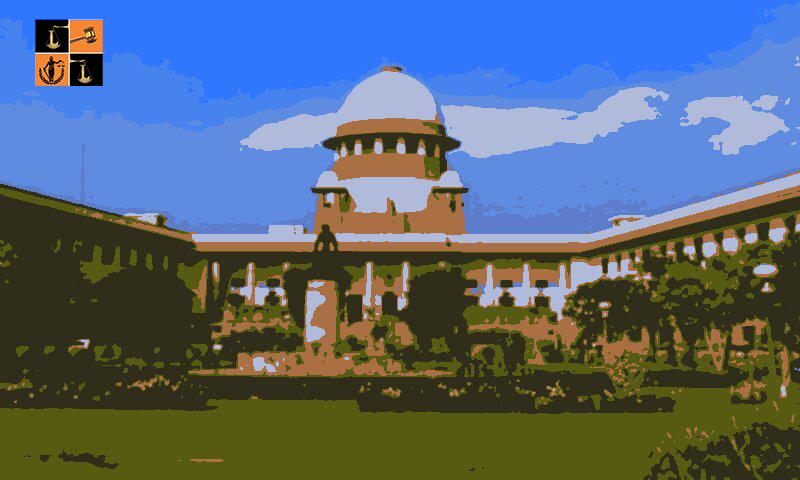On Tuesday, the Apex Court asked the police in states & Union Territories to ensure that innocents & individuals from backward communities are not named in a history sheet.
Initiating suo motu action, a bench of Justices Surya Kant & K V Viswanathan said there are some studies available in the public domain that reveal a pattern of "unfair, prejudicial & atrocious" mindset.
Police authorities in states & Union Territories should ensure that no mechanical entries in a history sheet are made of innocent individuals belonging to socially, economically & educationally disadvantaged backgrounds along with backward communities, scheduled castes or scheduled tribes, the apex court said.
The top court said a history sheet is an internal public document & not a publicly accessible report. Extra care & precaution should be observed by police officers while ensuring that the identity of a minor is not disclosed as provided by law in a history sheet, it said.
"It is alleged that police diaries are maintained selectively of individuals belonging to Vimukta Jatis, based solely on caste bias, a somewhat similar manner as happened in colonial times," the court observed.
"All the state governments are therefore expected to take necessary preventive measures to safeguard such communities from being subjected to inexcusable targeting or prejudicial treatment.
"We must bear in mind that these pre-conceived notions often render them ‘invisible victims’ due to prevailing stereotypes associated with their communities, which may often impede their right to live a life with self-respect," the bench said.
The top court said a periodical audit mechanism will serve as a critical tool to review & scrutinise entries made in a history sheet.
Through the effective implementation of audits, we can secure the elimination of such deprecated practices & kindle the legitimate hope that the right to live with human dignity, as guaranteed under Article 21, is well protected, it said.
"We are conscious of the fact that states or Union Territories, other than the NCT of Delhi, are not before us. They have not been heard. No positive mandamus can thus be issued to them. Further, we are not aware of the existing rules/policies or standing orders in vogue in different states/Union Territories.
"We, therefore, deem it appropriate, at this stage, to direct all the States/Union Territories to revisit their policy regime & consider whether suitable amendments on the pattern of the ‘Delhi Model’ are required to be made so that our observations made in paragraphs 14 to 16 of this order can be given effect in true letter & spirit," the bench said.
The apex court directed its registry to forward a copy of this judgement to the chief secretary & director general of police of all states & Union Territories to enable them to consider & comply with what has been held above, as early as possible but not later than six months.
The top court's observations came in a judgement on a plea of AAP MLA Amanatullah Khan challenging the Delhi Police's decision to declare him as a "bad character".
The apex court said the decision taken by the Delhi police that the History Sheet is only an internal police document & it shall not be brought into the public domain, largely addressing the concern.
"Secondly, the extra care & precaution, to be now observed by a police officer while ensuring that the identity of a minor child is not disclosed as per the law too, is a necessary step to redress the appellant's grievances. It will surely prevent the undesirable exposure that has been given to the minor children in this case," it said.
"We also direct the commissioner of Delhi Police to designate a senior police officer in the rank of joint commissioner who shall periodically audit the review of the contents of the history sheets & will ensure confidentiality & a leeway to delete the names of such persons of juvenile children who are in the course of investigation found innocent," it said.
It goes without saying that if an officer of Delhi Police is found to have acted contrary to the amended standing order & or the directions given herein above, prompt action against such delinquent officer shall be taken, it said.
The high court on January 19 last year dismissed Khan's plea against the decision of the city police to declare him a "bad character". It had, however, granted him liberty to make a representation before the authorities concerned to remove the bad character tag.
The Delhi Police had declared Khan, the Aam Aadmi Party MLA from Okhla, a bad character last year.
Khan's lawyer had contended before the high court that the authorities had "acted in absolutely malafide manner" & claimed the replica of the history sheet, which is a confidential document, was shared on social media by a spokesperson for a rival political party to "malign" his image.
According to police, a person who is involved in multiple criminal cases, including murder & attempt to murder, & can disturb peace in an area, can be designated a bad character.
(Only the headline and picture of this report may have been reworked by the LatestLaws staff; the rest of the content is auto-generated from a syndicated feed.)
Source Link
Picture Source :


























